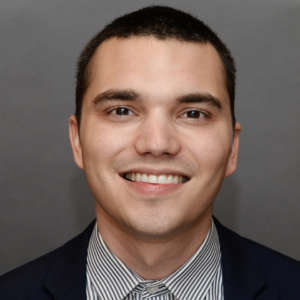Insight By American Military University
To offset personal bias, intelligence expert says those in the IC community should lean on diversity
Bias is one thing everyone has, diversity in the intelligence community and careful self-examination can help people leave behind bias and becoming superb...
In a world of fake news, pundits and super-PAC lobbying groups it can sometimes be hard to figure out what is the motivation behind a piece of information or even what is real.
Bias is one thing everyone has, diversity in the intelligence community and careful self-examination can help people leave behind bias and becoming superb intelligence employees , said Erik Kleinsmith, associate vice president for strategic relations, intelligence, national and homeland security and cyber for American Military University.
How can intelligence officials make sure they are doing their job properly? Kleinsmith said the importance of diversity in the intelligence community helps weed out bias and create the best product for the government.
“Have somebody that’s not from your background [look at your work], that’s why diversity works so well in the workplace, you have someone with more diverse thought from you. I’m a white male in my 50s. I’m going to want somebody who is younger, who is from a different background or somebody without any military experience to take a look at the product,” Kleinsmith said.
The intelligence community is in a strange spot now that the internet is coming to a point where it needs to regulate some of its searches.
To build on diversity, Kleinsmith tells intelligence professionals to do something else first. He said intelligence feeds from everything else like the financial sector, tactics, law enforcement and lawyers too. Those types of backgrounds bring different points of view to the table to evaluate pieces of information and the work of peers.
“There has to be almost a concerted effort to identify bias and trust within sources and evaluate them. We can’t just do a quick search and know that this source is going to give us the right story,” Kleinsmith said. “With critical thinking it’s a concentrated effort to get students of intelligence or even practitioners to think more actively about: how are they writing something, how are they reading a particular source, how are they doing their searches as they go through to identify what may be a leap of logic, or what seems to be a fact, but has been twisted or contorted to fit whatever narrative.”
At the same time, companies like Google are starting to crack down on misleading sites and sources, Kleinsmith said the regulation on searches can accidently add bias as well.
You have to be aware “of the bias within the meta-searches or within the engines that you are using, any kind of software used to pull information in, they are going to have a technical bias or even an algorithm change to optimize a certain viewpoint over the others. It’s just one more layer you now have to worry about,” Kleinsmith said.
The solution is self-awareness, Kleinsmith said. Everyone in the intelligence community needs to be aware of their bias and where they come from so they can check that bias and find others to offset it.
Kleinsmith said there is no substitute for education when it comes to identifying one’s strengths and weaknesses, and it provides a solid backbone for intelligence work. He mentioned how even years after finishing his degree at American Military University, Kleinsmith still goes back to the background knowledge he cultivated there to inform his work today.
Copyright © 2025 Federal News Network. All rights reserved. This website is not intended for users located within the European Economic Area.
Featured speakers
-

Erik Kleinsmith
Associate Vice President for Strategic Relations in Intelligence, National & Homeland Security, and Cyber for American Military University
-

Scott Maucione
Defense Reporter, FederalNewsRadio.com
Upcoming Events
Top Stories

Erik Kleinsmith
Associate Vice President for Strategic Relations in Intelligence, National & Homeland Security, and Cyber for American Military University
Erik Kleinsmith is the Associate Vice President for Business Development in Intelligence, National & Homeland Security, and Cyber for American Military University. He is a former Army Intelligence Officer and the former portfolio manager for Intelligence & Security Training at Lockheed Martin. Erik is one of the subjects of a book entitled The Watchers by Shane Harris, which covered his work on a program called Able Danger tracking Al-Qaeda prior to 9/11. He currently resides in Virginia with his wife and two children.

Scott Maucione
Defense Reporter, FederalNewsRadio.com
Scott Maucione is a defense reporter for Federal News Radio and has worked in journalism for over a decade. He previously covered the Pentagon for Inside Defense. His work has been published in The Washington Post, Random Nerds and a handful of other publications. He received his B.A. in journalism and political science from the University of Maryland and his Master’s from American University in applied politics.



